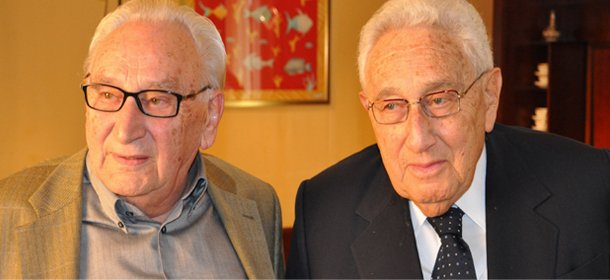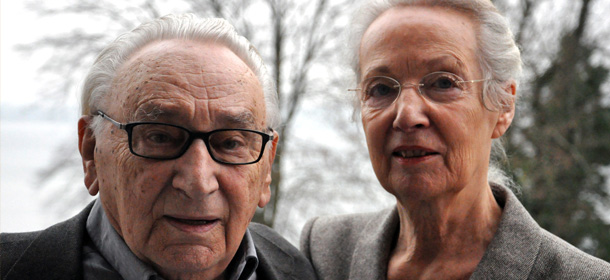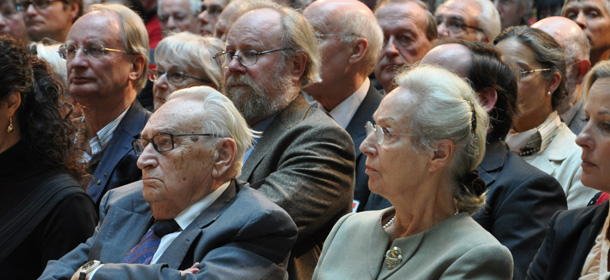PORTFOLIO
Portrait
Egon Bahr
Both Egon Bahr and Helmut Schmidt have decisively shaped contemporary Germany. The two charismatic men – who are meeting now in the office of the ex-Chancellor in Berlin – agree about one thing: there used to be politicians with vision, people whose wartime experiences have convinced them: “What happened must never happen again.” Today, it's purely a question of career advancement. In 2012, Egon Bahr, one of Germany's most contentious Social Democrats, will become ninety years old. Today, personalities like his are virtually absent from German politics: committed, loyal, propelled by a vision, he always felt himself indebted to his country. The notions of changing his position in response to an opinion poll, or of abandoning his post in order to work in the private sector: these were alien to his mental universe. What drives a man like Bahr, the grand old man of the SPD? How did politics function in his time? And how did his passion for politics, his steadfast loyalty to Willi Brandt, distinguish him from government politicians today? How is it possible that earlier, each voter knew what a party stood for, while today, anyone can stand for anything, and the next day, for nothing at all? Is it simply a question of eroding values? How does Egon Bahr see himself in relation to such developments? What is his perspective of the political stage today? This film biography of Egon Bahr seeks to address such questions. Pivotal historical events – including the reunification of Germany toward which Bahr strove, and the emergence of a united Europe – are seen in relation to his personality as a politician: Bahr and his colleagues were consistently preoccupied with long-term solutions to problems, with substance, with the struggle for a vision of society. Bahr had his allies. In the film, some of them – including Henry Kissinger and former Russian ambassador Valentin Mikhaylovich Falin – exchange ideas with him. These days, Bahr’s wife, education specialist Bonnemann-Böhner, is his principal companion, escorting him during public appearances, a dialogue partner in his free time. The film strives less to document historic events than to set Bahr at center stage as a personality, as a witness to the evolution of postwar German politics. Crucial events are presented less for their intrinsic interest than as a backdrop to the question: How did politics function back then? How did such critical junctures transform politics, how did they shape politicians? In light of today's environmental and climate politics, is it still worthwhile to strive for a sustainable future for society? Are there still social and political objectives comparable in urgency to the ending of the Cold War and the stabilization and development of Europe? “I know of no European politician today who has vision,” says Bahr.
Buch / Regie
Nicola Graef
Produktion
2012, ARD (WDR/MDR), eine Lona•media Produktion
45 min.
BACK TO PORTFOLIO

